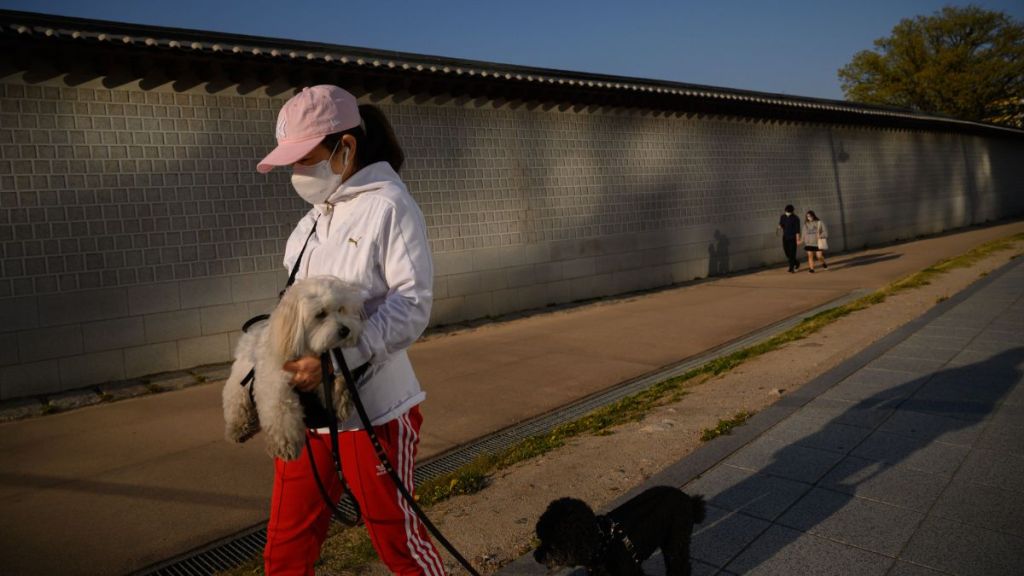Residents in South Korea have been finding solace in dogs at a time when there is a rise in single-person households. With the country trying to tackle the low birth rate issue, more South Koreans are choosing to stay single and gravitating towards dogs. According to a report by The New York Times, more than two-fifths of the nation’s households accommodate a single person. Furthermore, one in four families in South Korea has a pet, a statistic that doesn’t come as surprising when witnessing people’s bonds with dogs in real time.
Dogs become family in South Korea as birthrate drops
Dogs have become a crucial part of the family in many South Korean households. Pets, especially dogs, have become emotional support animals for single-person households and families as the country grapples with a low birthrate. South Korean President Yoon Suk-Yeol called the situation a “national emergency” after the country recorded a rate of just 0.72 in 2023.
The New York Times spoke with several dog owners, including 71-year-old Kim Seon-Ae, who recently bid farewell to her white Poodle, Dalkong. The family carried out an elaborate funeral for the late dog. Calling Dalkong her family, Ms. Kim said, “He was like a virus that infected me with happiness.”
Ms. Kim’s 41-year-old daughter, Kim Su-Hyeon, shared that she had no plans of having children. Speaking to the outlet, she shared her insights on raising children vs. pets. According to Kim Su-Hyeon, children “may talk back and rebel,” but such is not the case for dogs, who “follow you like you are the center of the universe.” A 40-year-old South Korean named Kang In-Hae decided to make her pet her partner. She told The Times that her 12-year-old Pomeranian, Merrong, gives her reasons to smile.
For the younger generation, pets fulfill their emotional needs amid rising housing costs and family dynamics. In any park in South Korea, one would find families or individuals taking their babies out on strollers. However, more often than not, one would realize that these strollers carry more dogs or pets than babies. In December, The Korea Times reported that the sales of pet strollers exceeded baby strollers for the first time that year.
This fast-growing industry is not limited to strollers. The Times noted that pet travel agencies offer interesting packages. While some Buddhist temples offer dog visits, many hotels now have pet-friendly rooms. Moreover, additional perks at pet daycare centers, a variety of organic pet food, and pet-friendly cafes are only a few examples.









